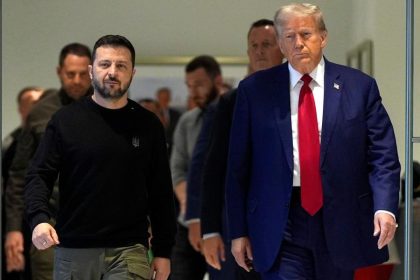It all started with the September cover of Vogue!
Last month, on the cover of the most important edition of Vogue magazine, we saw a photo shoot with the presence of four of the most famous supermodels of the 90s, and in the fashion shows of the four weeks of September, these models were seen many times on the catwalks!
The joint cover of American and British Vogue represents a global effort to establish Anna Wintour's role as Vogue's global director and editor, as well as a sign of the importance of the times; But what is the reason for the endless influence of these women in the fashion industry?
The Nineties: Living a Nostalgia
Nostalgia is a feeling that keeps pulling us back. Going back in time represents a desire to re-experience positive emotions, and for people, the 90s really represent a simpler time before the Internet and rapid economic growth that created a greater desire for glamor and following fashion.
Also, the growth of the entertainment and music industry and the popularity of series such as friends and sex and the city and rock and grunge music styles, which are still popular to this day, make the fashion trends of this decade more durable and influential.



On the other hand, fashion has a cyclic nature and popular trends come back every 20 years. In this regard, the trends of the 90s at the end of 2016 gradually became a source of inspiration for designers. Designers such as Alexander Wang and Jacquemus drew inspiration from the heritage of Helmut Lang and Thierry Mugler for their fall collections; But so far only signs of return and inspiration from the past have been seen.
In 2018, nostalgia was the most important fashion trend. Versace, then one of fashion's top five brands, officially started the trend by taking inspiration from its classic 90s looks.
The 90s, unlike the 80s, which was known as the designer's decade, was a time when all the big fashion houses became malls and fashion moved more towards advertising than before. The collection of these factors proves the importance of 90s fashion.
Nineties fashion trends
Fashion in the 1990s broke away from the voluminous hair and big Apples of the 80s with a wave of minimalist looks. Informal and casual clothes shaped the fashion trends of the 1990s. The fashion of this decade included several main styles:


Stylish and casual style
Casual unisex style made sense with jeans and shorts, tracksuits, loose shirts and crop tops. Princess Diana's style of cycling shorts, oversize jacket and white sneakers became an icon of casual clothing of the decade.
Hip hop style
In Europe and North America, hip-hop fashion became popular among youth with baseball caps, baggy jeans, bomber jackets, and sweatshirts.
Hip-hop music provided a platform for fashion designers and music artists to create an influential subculture.


Changing the nature of sleepwear
Fabrics with a high sheen, such as satin and silk, became prominent in this decade. Satin shirts and sex-themed dresses that had previously only been used as sleepwear were now being worn on the streets and on the red carpet. This style allowed women to find the courage to express themselves and as a result, society's view of women's bodies changed. In general, it seems that the fashion of the nineties gave women the courage to appear in society in their own way.
Business style
In Europe, three- and four-button suits in gray or navy, along with leather jackets, replaced the blazers and power suits of the 1980s.
In America, many men started wearing casual business clothes; A trend started by Microsoft's Bill Gates that revolutionized formal wear.




The cover that changed the world of fashion!
The reason for the influence and durability of fashion in the 90s was not only the trends and economic conditions of this decade. The term “supermodel” became popular in the 1980s; When models became famous as freelancers. In the 1990s, supermodels hosted TV shows and appeared in music videos.
80s fashion photography was classic and cool. The photos had promotional purposes and the models were only responsible for displaying the clothes; But photographers in the 90s preferred to photograph models in a more natural style and not consider them slaves to the fashion system.
In January 1990, British Vogue published a photo shoot of five models with the title “What next?” He put it on his cover. These models were Naomi Campbell, Linda Evangelista, Christy Turlington, Tatjana Patitz and Cindy Crawford. This cover changed the world of fashion forever.




In the continuation of this process, George Michael filmed a music video with the presence of these models. Many people consider these two events to be the beginning of the fame of these supermodels. These girls were known as the “big five” and their fame and social power surpassed that of many movie stars. At the end of the decade, the emergence of Kate Moss changed the fashion world and turned the Big Five into the Big Six.
These models, in line with the women's rights movements of this decade, proved that modern women can express themselves in different ways. The supermodels of the 90s redefined the concept of beauty; A group whose name and face became synonymous with beauty, elegance and style. From the catwalks of Paris to the pages of fashion magazines, these legendary women revolutionized the modeling industry; But what was the reason for the influence of these women and for what reasons were they noticed?
Naomi Campbell started modeling at a time when the fashion industry was suffering from racism. Her presence as the first black female model on the cover of French Vogue and Time magazines was an important event for the industry and paved the way for girls of color to enter fashion.


Kate Moss captivated the fashion world with a look that was called “heroine chic”. Kate's pale skin, dark under-eyes and lean, bony body became her signature, and her collaboration with Calvin Klein made her a size zero fashion icon. Of course, this appearance and body was later criticized and considered unhealthy.




In addition to making an impact in the modeling industry, Christy Turlington focused her efforts on the “Every Mother Counts” project; An organization that strives to make pregnancy and childbirth safer for mothers around the world.


Cindy Crawford still sometimes returns to the catwalks; But her influence on the industry and the living legacy of '90s modeling is now most evident through her daughter, Kaia Gerber.
By reviewing the activities of supermodels, we come to the conclusion that these women left a valuable legacy by breaking taboos in the social events of the 90s and will be an inspiration for us forever. After nearly three decades, the influence of these models on fashion and beauty is still palpable.
The presence of nineties models in campaigns
In recent years, the supermodels of the 90s have once again been the focus of brands and fashion campaigns.
The resurgence of '90s models is a sign of a wider shift; Because the fashion of this decade had a rebellious mood and broke many gender stereotypes. The sense of rebellion and rebellion that the world needs after spending two years at home and during the pandemic.
Legendary models including Kate Moss, Naomi Campbell and Shalom Harlow appear in most of the advertising campaigns and catwalks, alongside the models of this decade such as Gigi Hadid, and some of them have even launched their own brand, such as Kate Moss. This may reflect marketers' willingness to use proven strategies to influence consumers. Also, they may not have the ability to take risks and implement new strategies.
A clear example of this was the Skims Fits Everybody campaign belonging to Kim Kardashian's brand. The campaign brought together several generations of Victoria's Secret models and angels for the first time. Kim Kardashian did this with the aim of showing the power, energy and eternal charm of the models and taking advantage of their popularity to promote her new brand.
Last word: Why weren't the supermodels of the 90s replaced?
The nineties was the last period of life without the presence of the Internet. With the beginning of the 21st century, a new era began, which coincided with the arrival of the Internet and the popularity of applications such as Tiktok, which led to the emergence of influencers.
The influence of these virtual networks made every person who has a page on Tik Tok or Instagram to be in the position of a model. Naturally, in such an environment, it is not possible to influence models in a separate realm.
Therefore, brands and magazines still use the presence of supermodels from the 90s for their campaigns and catwalks to have the greatest impact on the audience and strengthen the sense of nostalgia.
RCO NEWS














